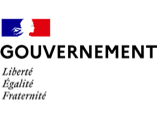Working with the pharmaceutical industry
Know pharmaceutical companies' Open Innovation programs and their impact on your business model
.- Pharmaceutical companies offer a variety of mentoring programs to help you grow your business.
- You'll gain access to the network of expertise and know-how of major pharmaceutical companies, in regulatory circuits, drugs, pathologies or knowledge of the needs of patients and healthcare professionals, for example.
Open innovation and pharmaceutical companies
What are the different types of support programs? What do they offer?
Open innovation programs for pharmaceutical companies can take different forms: mentoring/acceleration programs or innovation catalysts.
- They enable you to benefit from the expertise of pharmaceutical companies, sometimes on very specific therapeutic areas and healthcare themes.
- Some of them also offer financial support and/or premises to develop your project. On site, a dedicated team will be able to offer you a range of tailored services to facilitate your seed phase, co-develop and accelerate the marketing of your solutions.
For whom and why?
For whom?
- For start-ups offering innovative solutions particularly in e-health, digital health, data science.
- For the majority of programs, a few prerequisites: having already created the company, built the team, validated a proof of concept and already having market returns. However, expectations in terms of technological and/or market maturity levels depend on each program.
Why?
- To benefit from both the scientific and methodological expertise of the pharmaceutical industry and gain access to its network of players (national and international), financial resources, regulatory, legal and market access skills.
A few questions to ask yourself before taking the plunge
- Will I have time to spare for the mentoring sessions, workshops and possible interviews that will be conducted as part of the program?
- Is the pharmaceutical company I'm applying to clearly identified in my business model?
- Have I clearly identified the laboratory's interest in working with my company rather than another ?
- Are the therapeutic and/or technological areas of my project aligned with those of the laboratory?
- Am I ready to integrate an industrialist into the capital of my company?
- How will the project's results be promoted through publications and how will intellectual property be shared?
- Am I prepared to grant exclusive partnership rights to a laboratory for the entire duration of the support, in one or more countries?
How and when to apply?
Some programs select their winners as the year progresses, while others operate on a seasonal basis, with very specific application calendars. The best thing to do is to consult the program websites to find out if your company is eligible and corresponds to the defined themes.
A few tips for your application
- Explain clearly your motivation for joining the program: the interest for you, but also for the laboratory!
- Show that you have carried out an in-depth state of the art: who are your competitors? what are your competitive advantages and their barriers to entry?
- Present a viable, credible business model with which the pharmaceutical laboratory can identify.
- Present the expected spin-offs of the project, for the healthcare system, for patients and healthcare professionals, but also for your company and the laboratory.
- Describe the technological, social and organizational innovation of your project, as well as the stage of development reached, without disclosing any confidential information.
- Describe the governance of your start-up associated with your financial structure.
Examples of support programs
- ReAliZe from AstraZeneca
- Matrice from Roche
- Amgen Innovations
- Ipsen's Spinleap
- Pfizer Healthcare Hub France
- Synapse from Boehringer Ingelheim
- 39Bis from Sanofi
- Biome by Novartis
- JLabs by Janssen

